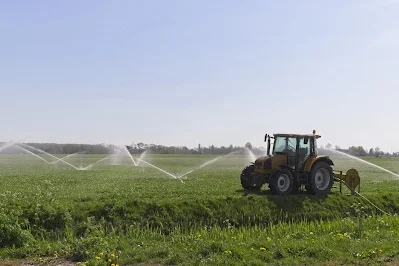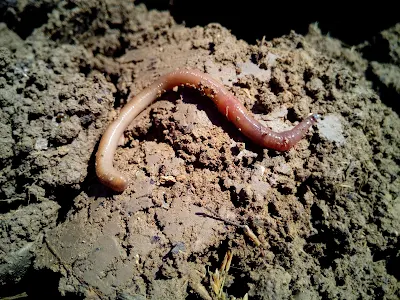Soil Management
Hello, viewers today I am
going to explain why soil management plays a crucial role in mitigating abiotic
stresses in plants. For the last eight years working in the Abiotic Stress
Management Institute, I have dealt with several farmers’ problems regarding
climate change. Most of the farmers totally neglect the soil management
practices this is key point for mitigation of abiotic stresses. Without proper
soil management practices, you can’t win the battle against abiotic stress.
Several lacks of acres of land go barren every year because of bad soil management.
The management practices
required for better soil health:
Water: Sufficient water supply is essential for plant growth, especially during drought conditions. Excess water supply also causes stress on plants by poor soil aeration, hindering normal aerobic respiration and reducing microbial activity. Soil management practices such as irrigation scheduling, mulching, and conservation techniques like contour plowing or terracing can help optimize water availability for plants. Appropriate soil water management makes sure that plants have access to sufficient water, reducing the impact of drought stress.
Role of Irrigation Management in Mitigating Abiotic Stress in Agriculture
Nutrient:
From the last few decades excess use of chemical fertilizers based on NPK
(Nitrogen, Phosphate, and potash) completely disturbs C: N (carbon-nitrogen ratio) in the soil. Soil management practices like fertilization, soil
testing, and nutrient application based on crop requirements can help optimize
nutrient availability and balance in the soil. Adequate nutrient supply
enhances plant vigor and resilience to abiotic stresses.
The Hidden Key to Soil Health: Maintaining the Right Carbon:Nitrogen Ratio
Organic matter:
Maintaining organic matter in the soil is crucial for improving soil structure,
water-holding capacity, and nutrient availability. Constant agriculture
practices reduce the carbon content in soil to lower than 0.5% in several
regions. Application of organic fertilizers like vermicompost, green manure,
poultry waste, etc. will increase the carbon content and improve soil health. Organic matter acts as a reservoir of
nutrients and helps buffer the effects of abiotic stresses. Practices such as
adding organic amendments, cover cropping, and crop residue management
contribute to building and preserving organic matter in the soil.
Soil structure:
Soil compaction, erosion, and poor soil structure can hinder root development
and reduce plant access to water and nutrients. Proper soil management techniques,
such as avoiding over-tillage, implementing conservation practices, and crop
rotation, can help preserve soil structure and avoid erosion. A healthy soil
structure allows for better root growth and nutrient uptake, enabling plants to
better survive under abiotic stresses.
Acidity, alkalinity, and
salinity: Extreme soil acidity, alkalinity, and high salinity
can cause nutrient imbalance, reduces plant nutrient uptake, uptake of excess
sodium, and calcium hamper crop growth, and hinders several biochemical
pathways in the plant. Soil management practices like liming to adjust pH,
leaching to remove excess salts, and using salt-tolerant crop varieties can
help mitigate the negative effects of pH and salinity on plant growth.
The proliferation of
Microbial activity: Soil microorganisms play a vital role in
nutrient cycling and enhancing plant stress tolerance. Soil management
practices such as avoiding excessive pesticide use, promoting beneficial
microbial populations through organic matter additions, and maintaining
balanced soil nutrient levels can foster a healthy soil microbiome
(specifically maintaining organic carbon content, it’s important for microbial
activity in nutrient cycles). A diverse and active microbial community helps
improve nutrient availability, disease resistance, and overall plant health.
In conclusion, soil
management practices are crucial for abiotic stress mitigation in plants. By improving
water availability, nutrient supply, organic matter content, soil structure, and
salinity levels, and promoting beneficial microbial activity, soil management
enhances plant rigidity and reduces the adverse impacts of abiotic stresses on
crop productivity. Creating one inch of soil layer nature takes thousand years
and in a few decades, we make those soil incapable of cultivation. Conservation
of soil is important for our future generation and the proliferation of human
civilization. Now it’s in our hands how we going to make changes in our farming
practices for the conservation of soil.





